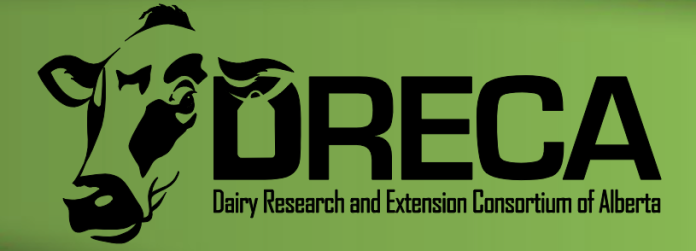
Source: DRECA
![]()
Why is this important?
Most people have heard about probiotics and what these compounds can do to aid gut health in humans and other animals. Many producers have likely heard researchers, service providers, nutritionists or veterinarians speak about the potential benefits that probiotics can provide to livestock, as well. But most people are likely not familiar with the term “psychobiotics”, which is used to describe a type of probiotic that affects cognitive and behavioural functions. And even if you had heard of such a thing, what could such a product possibly do for livestock?
The establishment of a healthy microbiome during early life plays an essential role in the health of an animal throughout their life. Much is known about factors that help to establish a healthy microbiome, such as full-term gestation, vaginal delivery, colostrum and whole milk feeding, and a lack of exposure to antibiotics. Additionally, the establishment of microbiota in ruminants is influenced by diet and exposure to the dam. A calf with a poorly established microbiome is prone to scours and other disorders. And, as it turns out, an unhealthy microbiome may also contribute to negative psychological effects, stress and poor welfare.
Probiotics are defined as “live microorganisms that, when administered in adequate amounts, confer a
health benefit to the host” (FAO). Psychobiotics are probiotics that specifically confer mental health benefits. Emerging evidence from human and rodent trials demonstrates that these products may treat anxiety, early life stress, and abnormal behaviours. As calves undergo a number of stressful procedures early in life, such as maternal separation, weaning, transportation, disbudding and/or castration, it is possible that this age class may benefit from administration of such compounds at an early age.
These researchers examined the current evidence around the use of psychobiotics in humans and other animals and then considered the potential use and benefit if these products were used in neonatal calves.

Probios Oral Boluses for Ruminants – VPSI (vetpoultry.com) https://www.techmixglobal.com/product/rumen-yeast-caps/
What do we know so far?
The absence of gut microbiota and disturbed microbial communities in the gut have been associated with poor functioning of the immune system, reduced metabolism, underdevelopment of the gastrointestinal tract, and psychological disorders, suggesting the importance of microbiota in early development due to the potential long-term health and physiological effects.
There are many studies demonstrating that probiotics have a positive impact on gut health, nutrient absorption, and immune health. These products have been used in various livestock species to aid in growth performance and as an alternative to antibiotics in an effort to reduce the incidence of disease in a herd.
Producers recognize that calves go through several necessary, but stressful, events during the pre-weaning period, including maternal separation, drastic changes in diet, disbudding or dehorning, castration, transportation, and weaning, which contribute to variations in the postnatal development of calves. All of these stressful events result in various physiological, immunological, and behavioural changes in the animal.
Recent studies have demonstrated that oral administration of a multi-strain probiotic product (Lactobacillus, Bifidobacterium, Bacillus) has resulted in reduced inflammation in stressed individuals, indicating the potential to mitigate stress-driven negative effects. Since psychobiotics are essentially probiotics with mental health-specific effects, specific probiotic strains (such as Bifidobacterium longum and Saccharomyces cerevisiae), which are already used in animal production, could be combined for a psychobiotic effect. Since there is a link between gut dysbiosis, mental disorder, and reduced immune function in animals, psychobiotics could act as a method to improve stress robustness and improve various production
parameters overall. Producers would have incentive to use psychobiotics in an effort to bring about improved health and welfare (reduced stress), leading to a cost- effective and consumer-attractive product.
What does it mean?
As scours is the leading cause of mortality and illness during a calf’s early life, effective and timely development of the calf’s microbiome is essential to long-term health, welfare and productivity. This may be achieved more efficiently through administration of multi-strain probiotic products. Furthermore, this early life microbial colonization has a marked effect on neural and brain development in the young ruminant, which affects stress responses and the development of normal behaviour. Producers could use these probiotic products to select for stress robustness in the early life of calves, allowing for reduce disease incidence, improved immune function, and increased production.
Further research in this area is necessary to fully understand the effects of psychobiotics on a number of parameters. Future studies should consider important production parameters, such as feed intake, ADG, disease incidence, and behaviour.
Summary Points
• Effective and timely development of the calf’s microbiome is essential to long-term health, welfare and productivity, and may have a positive impact on stress robustness and normal behavioural developoment.
• Multi-probiotic strain products, including strains of psychobiotics, have the potential to provide efficient colonization of the gut and to improve growth, immunity, and overall welfare of the calf.








